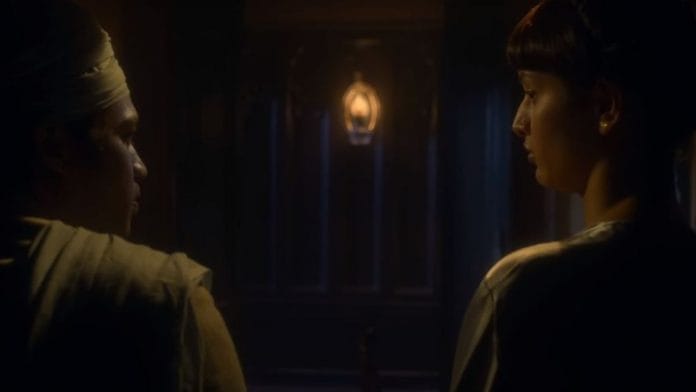Netflix’s latest release Qala is achingly and breathtakingly haunting, evoking a Wuthering Heights-like ambience. The story of a fraught mother-daughter relationship is set amid the bleak landscape of a snow-clad Solan in Himachal Pradesh. The thematic setting complements the grief and guilt of its lead protagonist, Qala Manjushree, played by Tripti Dimri. The 119-minute film is directed by Anvita Dutt who has effectively donned multiple hats — she was also the dialogue writer of Kangana Ranaut’s 2013 blockbuster Queen.
Babil Khan’s spectacular debut is a revelation as he embraces the character of Jagan with a conviction that is a delight to watch on screen — authentic and seamless at the core.
Family, grief, survival
Qala Manjushree is a famous Bollywood playback singer who has just won a golden vinyl record. As photographers and journalists vie for her attention, one question on her sibling pierces Qala’s practised smile and demeanour. Nervous and agitated, she claims she has no siblings.
The scene cuts to her mother Urmila (played by Swastika Mukherjee) on a hospital bed after giving birth. Urmila is told that baby Qala’s twin brother didn’t survive. Qala’s hunger and fight for survival probably did not allow her sibling to survive in the womb. The tone is set for the rest of the movie: Qala, the daughter looked at with contempt, tries to live up to her mother’s expectations. Enters Jagan, an orphan boy with a golden voice — Urmila takes an immediate liking to him and visibly prefers Jagan over her own daughter. What plays out among the three forms the plot of the movie.
Also read: SonyLIV’s Wonder Women no DC magnum opus. But it shows female grit, pregnancy to sisterhood
Qala’s world
Anvita Dutt grabbed eyeballs with her directorial debut Bulbbul (2020), which also starred Tripti Dimri. The feminist, revisionist slow-burn period drama, set in late 19th century India, was both beautiful and haunting, a combination that Dutt seems to rely heavily upon.
Qala’s stunning visuals go well with Jagan’s eerie appearances. One is reminded of the Natalie Portman-starrer Black Swan (2010). There is tragedy lurking at the edge of almost every frame — it reaches its culmination in the final moment of the film.
Qala also shifts from Himachal to Kolkata to show a scene in which Urmila, Sanyal (Samir Kocchar), Qala, and Jagan are on a boat ride singing Shauq. Written by Grover and sung by Swanand Kirkire, Shahid Mallya, and Sireesha Bhagavatula, the song brings Kolkata’s essence to life as much as Pehro Na Najariya renders the tragedy in the background stark.
Kolkata’s booming film and music industry is captured without missing a single beat. Qala also introduces characters such as Sumanta (Amit Sial), a lecherous, exploitative music director, and a courtesan Najiman (played by Veera Kapur). To say that the supporting cast adds to the film’s power would be an understatement.
Also read: Ajay Devgn’s Drishyam 2 is how remakes are done. Bollywood now has a playbook to follow
The women in Qala
Tripti nails her role as Qala. She looks equal parts frail and determined and is stunning while doing it. Qala’s quarter-sleeved, high-neck blouse with a dreamy organza saree and a smile that lights up the frame belies the pain she carries within herself.
Like Bulbbul, Qala also looks at an unequal world where the rules are different for men and women. Male classical singers are conferred the title of ‘pandits’ while women have to tread a delicate line between being a singer and a courtesan. Even as Qala establishes her place in the music industry, the sacrifices are massive. But she never forgets about the people who exploit her.
Swastika Mukherjee as Urmila shines too. Her maternal instinct toward Jagan is in direct contrast with her cruel treatment of Qala. But as the audience, Urmila’s abandonment issues make you sympathise with her plight—even as she doles out ruthless punishments to Qala.
Anvita and Qala ensure that women get their place in the film. Qala chooses Homai to click her photos over male photographers and also hires a female secretary, played by Girija Oak, to work for her. In her capacity, she tries to give due credit to the women around her.
Qala will break your heart, with the music increasing the pain and soothing you at the same time.
Views are personal.
(Edited by Humra Laeeq)






